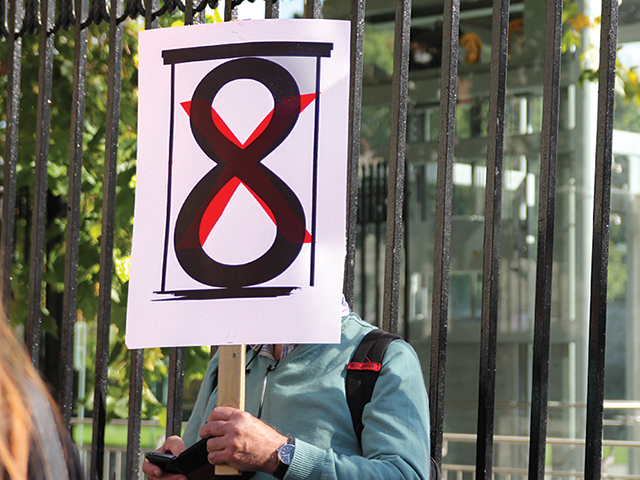
[dropcap]There[/dropcap] was a wave of shock and worry across the country this week as a 26-year-old man was convicted for using social networking apps to groom girls as young as nine years old and for possessing thousands of child pornography images.
Parents were outraged and began calling for changes and reform to legislation to protect children using social networks. Some experts even recommended a nationwide ban on smartphones for children under the age of 14.
Although the shock and upset from Irish parents is completely understandable, prohibition is not the solution. Taking away what children want most will only lead to children going behind parent’s backs, lying and eventually ending up in a situation that is uncontrollable for a child.
Millennials are capable of outsmarting their parents when it comes to technology. According to the Education Research Centre, nine out of ten of children in sixth class who are aged 12 will have a smartphone. If parents want to protect their children from the dangers of smartphones, then they have to come to a mutual understanding with each other and educate them on the dangers that exist. Denying them a phone and a chance to understand the digital world will only create a hunger in the child to see what they are missing out on.
If parents can explain the dangers and tell them how to address the situation if it ever arises then the child will know what to do when the situation arises and will be comfortable enough to talk to their parents. However, a child who was denied access to social networks but manages to go online will be too afraid to go to their parents if they find themselves being groomed or threatened.
It’s important to realise that children need to be protected, but they need to be given the opportunity to mature and learn. When they reach the correct age to use smartphones and social networks safely they should be allowed to do so but also accept that their parents will monitor what they are doing. Every family in the country needs to make their own decision whether their child is online or not and if parents are aware of their children’s activities, they can protect them.
Denying a 12/13-year-old access to social media means that they are only learning about the dangers and the risks when they are old enough to actually be physically independent from the parents. This increases the risk of a paedophile meeting the teenager in person.
The internet is unavoidable but the risks involved are not. Instead of changing legislation the government should focus on funding internet safety education in schools. Let children be part of the digital world but show them how to do so safely.
Children’s internet safety is an international problem and there doesn’t seem to be one clear and feasible solution. However, it is up to every parent to monitor their own children’s internet use. Education is key when it comes to internet safety, and the sooner a more open discussion happens with children, the sooner they will identify risks and become more responsible online.
Megan Conway
Image by Tara Shiels



